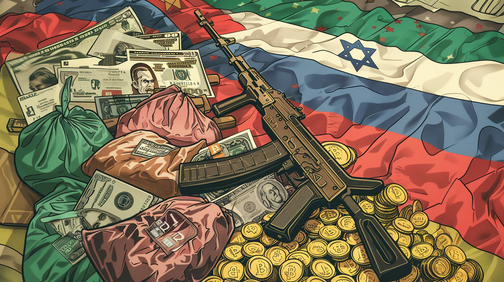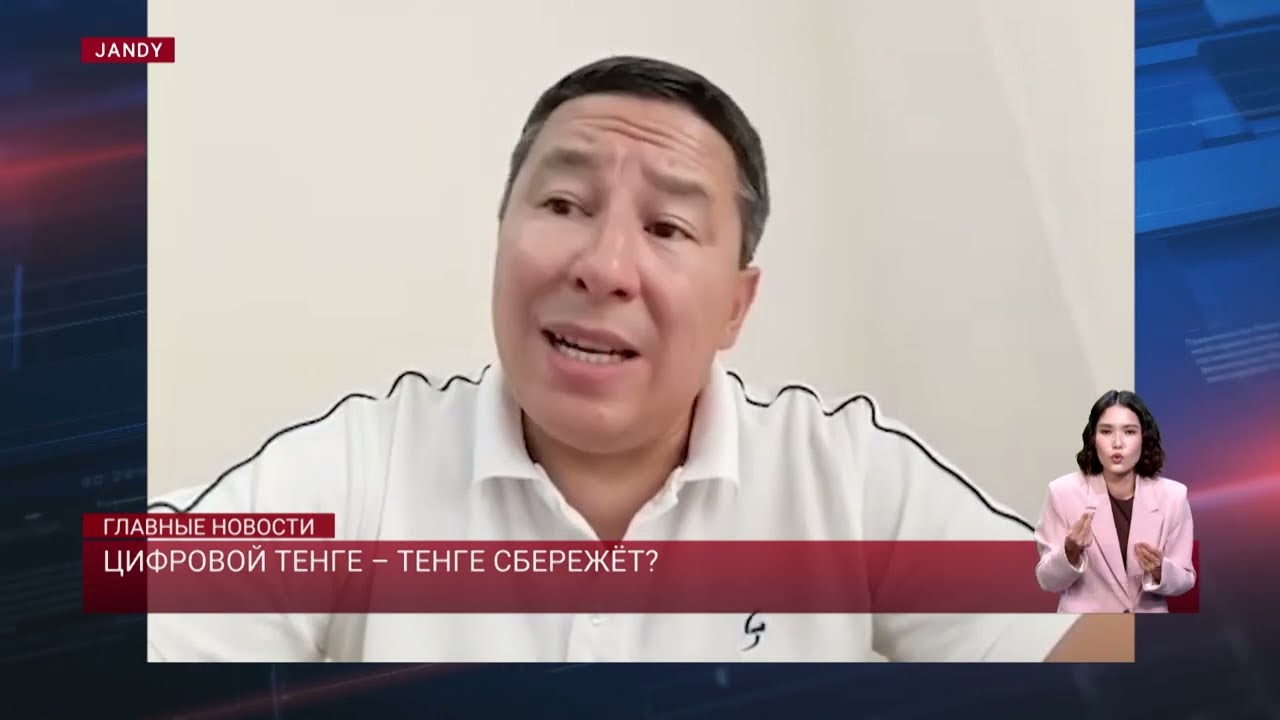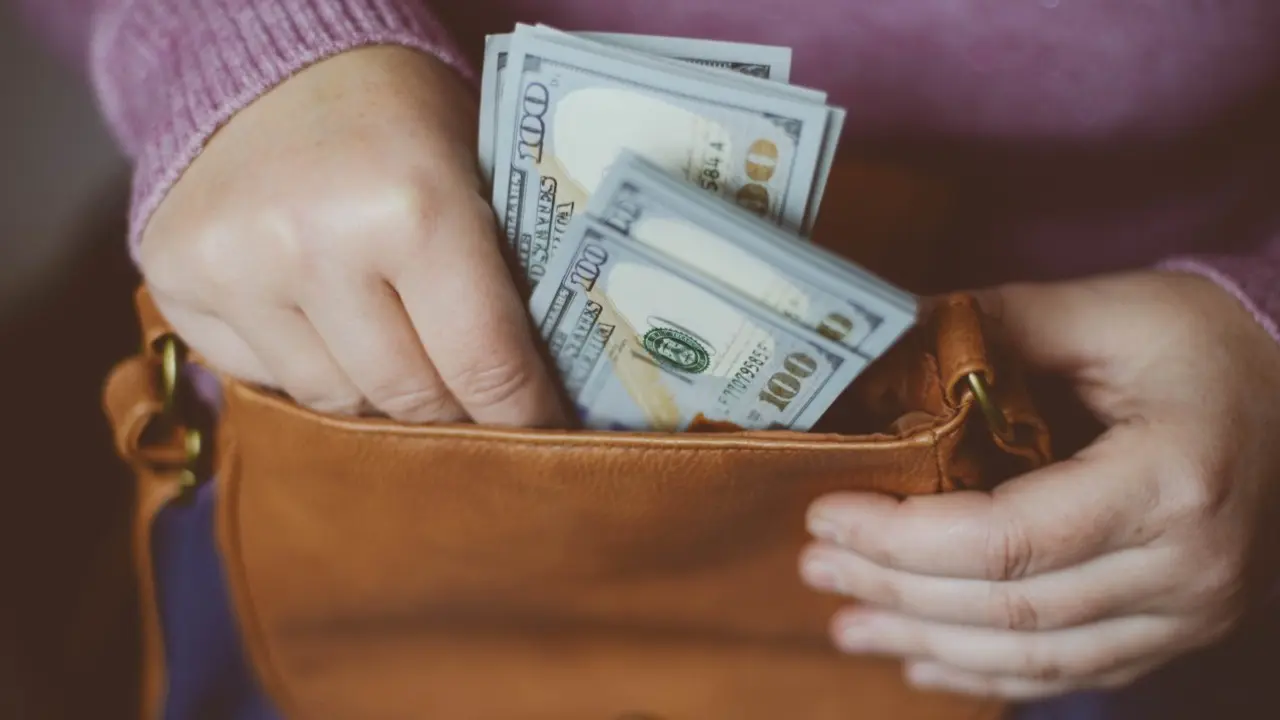We will become poorer than before the pandemic
We do not know for sure whether economists, like ex-Minister of National Economy Bishimbayev, believe in astrology, but on May 8, a New Moon came, which will occur at the 19th degree of Taurus in conjunction with Uranus. This will bring unpredictable events in the economic sphere for the next month.
However, even without the forecasts of stellar specialists, in recent years we have been observing a situation of an ideal storm. In April, the IMF published a report on the prospects for the development of the global economy.
According to experts, this year and next, the global economy will grow by 3.2% - at the same pace as in 2023. In advanced economies, growth will increase from 1.6% in 2023 to 1.7% in 2024, in developing countries it will decrease from last year's 4.3% to 4.2% in 2024. Global inflation this year will be 5.9%.
The IMF believes that the forecast for global economic growth in five years (at 3.1%) is the lowest in recent decades. And the World Bank believes that global economic growth in the first half of this decade may be the weakest in the last 30 years. In Central Asia, the growth rate is estimated to decrease to 2.4% this year.
The global average is expected to stagnate or grow slightly. The World Bank focuses on the fact that the increase in geopolitical tensions in the near future may create new threats to the global economy. For many developing countries, the medium-term outlook has deteriorated due to a slowdown in growth in most major economies, stagnation in world trade and the strongest tightening of credit conditions in recent decades.
The growth rate of global trade in 2024 will be only half of the average in the ten years preceding the pandemic.
By the end of this year, experts estimate that the population of almost one in four developing countries and about 40% of low-income countries will become even poorer than before the pandemic.
Bunker, kalash and gold
In the context of global instability, military conflicts, high inflation, climate shocks and growing debt, how can you save and multiply your assets, where to invest if there is a war tomorrow? Note: a number of experts believe that the world is already in the stage of the Third World War, unlike traditional military and political conflicts - this is a war for resources, an economic war.
Financial analyst Arman Beisembayev noted on this occasion: this is no longer the format of past wars, when dozens of countries unite and stand united against one enemy.
"The world is gradually plunging into a crisis associated with the active phase of deglobalization: the transformation of the global economy, the revision and restructuring of relations, trade flows, logistics is underway. Conflicts will periodically arise on the lines of demarcation of economic blocks, including currency ones.
In conditions close to the Third World War, it hardly makes sense to invest anywhere other than physical gold in the form of coins or bullion. Especially if your place of residence could potentially end up in a war zone in the foreseeable future," the source told TAJ.report.
In this scenario, it is necessary to invest in stew, pasta, cartridges, a Kalashnikov assault rifle and build a bunker capable of withstanding a nuclear strike.
"But this is the most negative scenario. If we consider not such catastrophic options, then we keep in focus the fact that there is no alternative to the dollar today. And you can invest in American currency.
But here a lot depends on the amount of your capital: if we are talking about amounts up to 5 thousand dollars, then put it on a bank deposit and do not worry. If we are talking about hundreds of thousands of dollars, then it may be worth converting savings into different currencies," the financial analyst said.
At the same time, he believes that in the context of the deglobalization of the world and the creation of separate economic and currency blocks, the dollar will cease to be a global reserve currency in the future for 10-20 years and, like other currencies, will move into a certain habitat.

Arman Beisembayev - Financial analyst
"China has plans to expand the yuan zone in Southeast Asia, which it would like to include Japan, among others. She tends to the United States and would like to stay in the dollar zone.
The Russian Federation has ambitions to create a ruble zone, and apparently, Kazakhstan is in its orbit. We are unlikely to enter the yuan zone," the expert added.
Treasuries - yes, crypts - no
Continuing the topic of deposits, he named securities - first of all, the American stock market.
"Consider debt securities, US government bonds - the famous treasuries, which have a fairly good yield. If in Kazakhstan the yield on dollar deposits is 1%, then the treasuries give 5%. They are considered super-reliable securities, for which the risk of default or bankruptcy is almost impossible.
Recently, the shares of the American stock market were at peaks, now they are slightly declining. Right now, I would not buy them – I would wait for the acute phase of the crisis, I think it will be in the second half of 2024, maybe 2025," the financial analyst shared.
The famous Jewish saying "Buy when rivers of blood run through the streets" in relation to the stock market works with a bang, he added.
"The peak of negativity will indicate who went to the bottom, and after this bottom it will be possible to see where to buy which stocks. When these avalanche flows of the crisis settle, it will become clear what to take from the shares of the surviving companies – they have a good foundation for the future.
In case of bankruptcy of companies, the value of shares will be zero, and no one will return this money to you," Beisembayev emphasized.
As for the cryptocurrency, he sees no prospects here.
"You can speculate, but I would not invest seriously. I believe that cryptocurrencies have no future. First of all, blockchain technologies will develop.
At the same time, there will be digital money, the monopoly on the issue of which will remain exclusively with the state. That is, crypto money will remain in the form of a crypto dollar, a crypto euro, a crypto ruble, a crypto currency, and so on," the financial analyst replied.
Of tangible assets, he suggests considering real estate.
"Despite the fact that it is considered a low-liquid asset in itself, which will not be able to bring money quickly.
And once again about gold – investments in it have become more relevant against the background of the collapse of the global monetary system," the expert said.
What does it have to do with renting things and water
In addition to deglobalization, the world is facing a second paradigm – the construction of a new technological order, the analyst stressed.
"Big data, biopharmaceuticals, biotechnologies, Elon Musk's Neuralink - implanting a chip into the brain, controlling various objects with the power of thought.
At this stage, technology is being tested, but in the foreseeable future, with the power of thought, you will be able to turn on the lights in the house, microwave and pull eggs out of the refrigerator. By the time you get to the kitchen, everything is already done. Such a world will happen if a nuclear war does not start," our interlocutor is sure.
He also highlights some likelihood that personal possession of things will become unfashionable.
"It won't make sense to have things at your personal disposal - everything will be shared, rented. We already live in such conditions: apartments, cars, scooters, mobile phone rental services are emerging. You pay monthly for using the device - as on a loan, and after a year you can deposit the remaining amount and pick up the phone, or you will be replaced with a new rented device. We watch movies at the box office on streaming services, listen to music and read books.
They wanted to wear a T–shirt - they left a small amount in the store, they carried it for a couple of days and brought it back, took another thing. Or a certain subscription in stores can be opened according to the same principle," the analyst designed the models of tomorrow.
Therefore, we need to look at the sectors of the economy, the companies that will do this, and invest in their shares.
Another life hack from an expert is related to resources.
"The problem of the future that all environmentalists talk about is water. Companies engaged in the extraction and exploration of water resources, water purification, and environmental projects are sitting on the gold of the future of humanity. Moreover, the shortage of clean water in the world is growing and the demand for it will only increase. Or pay attention to companies and foundations that deal with water resources.
And, of course, do not forget about artificial intelligence and the actions of participants in this market," Arman Beisembayev said.
Taxi and pizza from the UAV
In other words, it is important to keep a new technological way in mind and follow trends.
"If humanity does not destroy itself, we will have a leap of progress. Although wars usually lead to it, the same nuclear bomb appeared during the Second World War and gave rise to other nuclear technologies – nuclear power plants, MAES and others.
Subsequent wars led to the development of the Internet and mobile communications. That is, first of all, it was military technology, which then got to the mass market. Even the microwave has gone this way," the source stressed.
The Russian-Ukrainian war has given rise to the development of unmanned technologies, including those based on artificial intelligence.
"And the unmanned aerial taxi is also our future. After all, UAVs were also originally a toy for amateurs, but now they are used in battles with opponents: they are used to observe, bomb, kill. Sooner or later, the war will end, but the technologies themselves will continue to live in a different capacity.
And then scientists and marketers will be involved, who will think about how to use these things to make a profit in peaceful life," the financial analyst believes.
He recalls the sluggish, crude attempts to use UAVs for food delivery made in 2017-2019.
"And the war has led to the fact that these technologies are being honed to the state of a blade before our eyes. At the front, it is strategically important to drop a bomb on a group of enemy persons, your UAV must fly with an accuracy of centimeters and drop ammunition. It depends on whether you will live in the next second.
These skills will ensure the delivery of goods in peaceful conditions. A UAV with pizza flies up to your window, and through the window you take the order," the interlocutor described the picture of tomorrow's life.
And, following his forecasts, you should invest in stocks and everything related to the relevant industries.
The best investment is in yourself
Economist Kuanysh Zhaikov does not believe in World War III yet, noting that politics is a very pragmatic sphere, and fanatics ended in the twentieth century.

Kuanysh Zhaikov - economist
"Where to invest? - Again, it depends on the size of the assets. The best investment is the person himself. Invest in language skills, education and skills, and social connections. Invest in children so that they are ready for different conditions. After all, we are talking about how to secure income in the future in case of something.
If it is, and small assets are on top, then, once again, I would not consider further deposits and passive investments in index funds.
If the assets are very large, but they are generated internally - I mean super-rich people - then participate in the construction of this country. To help strengthen its security, political stability, and economic system. There is no other way out," the economist said.
The problem is for those who are stuck between the last two categories. When there are already normal assets, but not enough to affect the system, he added.
Economist Askar Kysykov believes: if we are talking about the average Kazakhstani, then it is better to keep savings in those tools that will ensure maximum access to them.
"That is, these should be liquid assets for which you can quickly get money back. This is, of course, cash. But there are certain costs of storing the cache at home. For example, it is legally prohibited to keep more than 34.5 million tenge at home.
One of the basic tools for storing money is a deposit, especially since the rates on tenge deposits are good. So, if your main expenses and payments, including loans, are in tenge, this is a convenient option," the economist said.
Risky bonds
Large amounts need to be diversified into different currencies and foreign currency deposits – euro and dollar, as well as gold, he continued.
"Another type of investment is bonds. Currently, there are many issuers in Kazakhstan that issue bonds, including in dollars, with good rates. Last year, there was a 12% rate for dollar bonds.
I have heard that now a lot of bonds are offered in tenge at 20% and in dollars at about 10%.
But you need to understand: bonds and stocks are not exactly liquid assets, there is a serious risk for them. In the event of a crisis, when you want to get out of them, you can do it with serious losses of money and time," said Kysykov.
Considering the most negative scenarios, he advises the following:
"If there is a need for a person, a family for something, and there is free money, then it is better to invest in something that will increase comfort and living conditions. If you need to make repairs, do it now. If necessary, buy durable goods – a car, for example.
I think it's better not to save, but to invest in physical assets that will stay with you. In fact, this is investing in oneself," the economist stressed.
Many people talk about falling prices in the real estate market, but our interlocutor does not see any reasons for a serious drop.

Askar Kysykov - economist
"You need housing – buy when you need it, do not wait for a better day when you hope to win by falling prices. Buy a house, increase its comfort, expand the living space. The best time for this is now," the expert is sure.
Time to collect the cache
Financial analyst Rasul Rysmambetov considers it optimal to divide the portfolio into two parts.
"One tenge part can be put in a bank, and the currency part can be put in a safe or on a foreign currency deposit. It's time to admit that the best deposit is a person and their health. In addition to the dollar, you can look at euros or other foreign currencies," the source told us.
His colleague Andrey Chebotarev, like previous speakers, noted: the form of asset storage depends on your assessment of the status quo.
"If you are confident about the beginning of World War III, then the best investments will be in the construction of a concrete bunker and wholesale purchase of iodine, preferably in tablets - it will come in handy.
If we are talking only about a possible threat, then the rest depends on your attitude to risk and everything else. Gold is traditionally considered a protective asset, but now it acquires the symbols of an investment asset - they invest in it because it is growing in price.
Everyone decides for themselves what to store and where, the main thing is to understand for themselves: there will be a Third World War or not," commented the financial analyst.
A person tends to think that everything will be fine, and it will pass, he continued.
"Otherwise, everything will be very bad, and gold may not help, and the dollar even more so. Then it is not known what to invest in. So I can't recommend anything in the criteria of the Third World War, and if it doesn't happen, then now is the time for cash and gold. In general, cash is always the most liquid asset in case of a crisis, which can always be converted into goods and services the most and fastest," Chebotarev said.
What are the expectations, such are the contributions
Financier Murat Temirkhanov, in turn, is confident that assets should be held in different things.
"If there is a crisis, then money is best. However, I don't expect a crisis.: Economic growth is good in China, and in the United States they are worried about high inflation and economic stagnation, but in my opinion, everything is not bad there either.
In the absence of a crisis, it is better to diversify your investments: some into a deposit, some into securities, some into gold. I do not recommend Bitcoin – you need to be a dashing risk taker for this," the source said.

Murat Temirkhanov is a financier
And if you expect a crisis, it is better to transfer to money and sit on it. But the specialist recommends keeping these eggs in different baskets: in tenge, dollar, euro.
"If you do not expect a disaster in Kazakhstan, then most or half of it can be stored in tenge, the native currency removes currency risks.
The remaining part should be converted into currency. Everyone always looks at the dollar and the euro – it's about the real market economy.
Although the EU is on its own now, so is America. The yuan is not so common. But the Chinese currency is constantly causing concern - there is too much politics there. So, if you are sitting on cash, put the eggs in different baskets," the financier noted.
He himself, as a citizen of pre-retirement age, tries to save for the future in order to live normally in old age.
"I keep part of my savings in mutual funds. Which ones are not the point. These can be foreign exchange funds, funds investing in securities and other assets. Inflation in Kazakhstan is high, and this method is a good investment.
I keep part of my assets on deposits with the bank. I'm thinking of investing in a retirement annuity. But, to be honest, it is not profitable to do this in our country, I do not know where the AFRR (Agency for Regulation and Development of the Financial Market) is looking. The term of life and the term of pension payment are incorrectly considered. Therefore, we have to look at foreign currency annuities again," Murat Temirkhanov shared with us.
The interlocutor did not analyze the contributions to the context of the Third World War.
"Iran and Israel are more concerned than Ukraine and Russia. But there is a feeling that it is completely unprofitable for Iran to escalate the conflict, as well as for Israel. There is hope that the situation will not escalate into a major Middle East conflict.
Although it is difficult to predict in politics, as well as in economics," the financier concluded.
Author: НАЗГУЛЬ АБЖЕКЕНОВА
Source: https://taj.report/wheretoinvestinwar



